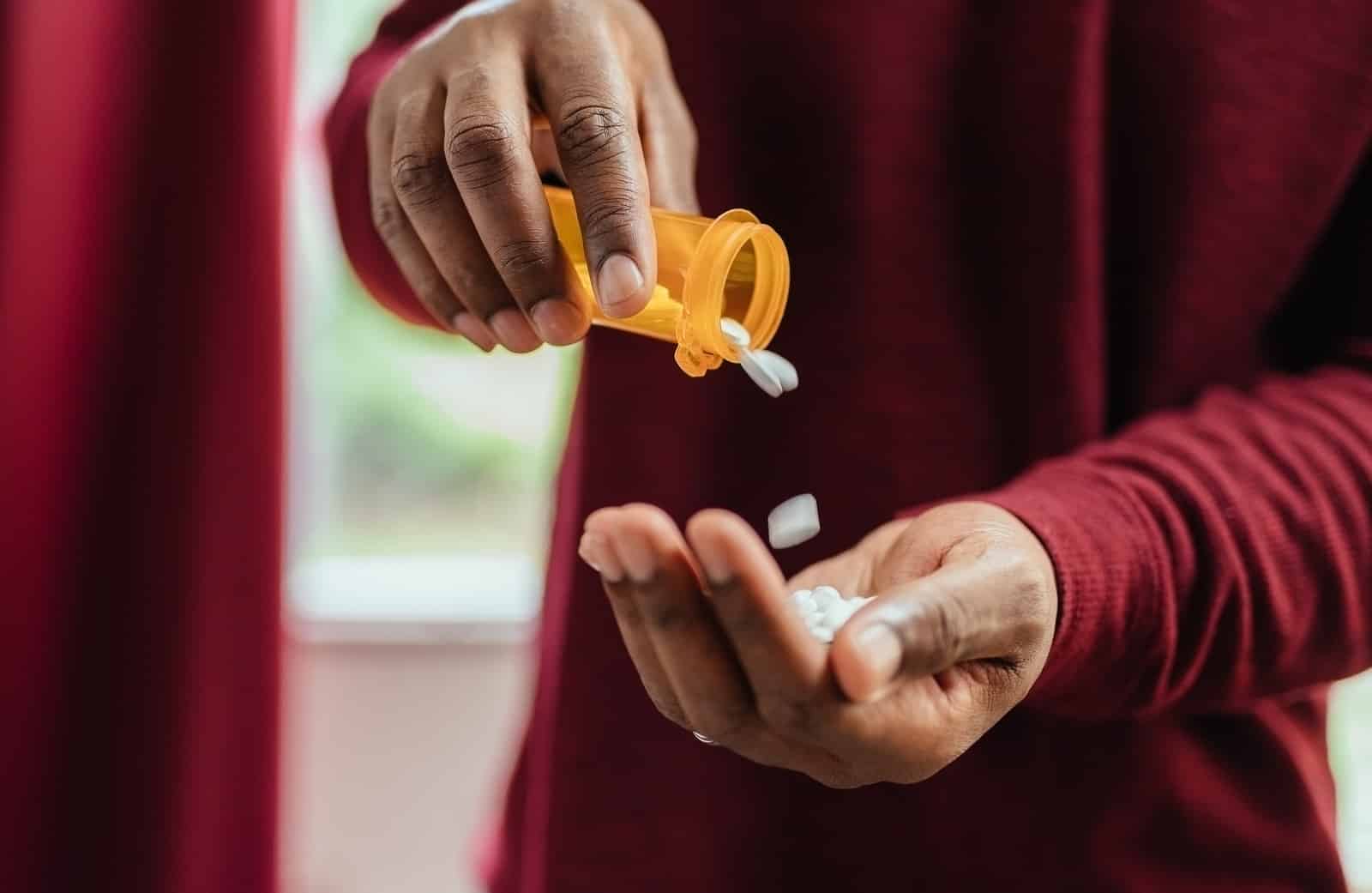Doral® is a medication used to treat insomnia. A prescription is required, and it can be taken alone or in combination with other drugs. Doral® is a member of the sedative/hypnotic drug class.
Doral® Overview
Doral® is a prescription medication for those who struggle with insomnia. Typically it is used for only 7-10 days at a time. It’s used to help the user fall asleep quicker and reduce the number of times they wake up during the night.
What is Doral®?
Doral®, or quazepam, the generic name for Doral®, is a medication used to treat insomnia.[1] Doral® is commonly prescribed to people who suddenly experience sleep issues and is not prescribed for use longer than 10 days.
Using this medication long-term is not advised as it has a high potential for abuse.
Is Quazepam a Benzo?
Doral®, or quazepam, are both benzodiazepines. Depressants known as benzodiazepines cause sleepiness and may ease anxiety and muscular spasms, and help with seizures.
Because of their addictive nature, benzodiazepines like Quazepam are controlled in Schedule IV of the Controlled Substance Act.[2]

Is Doral® Safe to Take?
Take Doral® only as prescribed by a physician. When taking this medication as directed and only with a prescription, it is generally safe to do so. There are various drug interactions that make taking Doral® unsafe, including opioids, alcohol, and other benzodiazepines.
It’s critical to remember that Doral® is addictive. Avoid using this medication unless you have a prescription, and use it only for a short time. Whenever possible, use natural remedies to aid insomnia.
Doral® Uses
Doral® is prescribed for people with sleep disorders, primarily insomnia. Insomnia makes it difficult for someone to fall asleep, stay asleep, or sleep longer than a few hours.
This medication is not approved for use for longer than 7 to 10 days.
Doral® vs. Xanax®
While Doral® and Xanax® are both benzodiazepines, they are used to treat different conditions. Doral® is only prescribed to relieve symptoms of insomnia for the short term. Xanax® has multiple uses. Xanax® is prescribed for anxiety disorders, panic disorders, OCD, PTSD, bipolar disorder, and insomnia.
Since Doral® and Xanax® are benzodiazepines, they are both Schedule IV and have a high chance of abuse, misuse, or addiction.
Doral® vs. Valium®
Doral® and Valium® belong to a class of drugs called benzodiazepines. While they both are sedatives that calm the mind, there are key differences between how they’re used and prescribed.
Doral® is only intended to treat insomnia. Valium® is used for anxiety, alcohol withdrawal, and seizures.
Both Valium® and Doral® are Schedule IV drugs with a significant risk of abuse, misuse, and addiction.
Doral® vs Klonopin®
Doral® and Klonopin® belong to the benzodiazepine class of drugs. There are significant distinctions between their uses despite the fact that both of them are sedatives that relax the mind.
While Doral® is intended for sleep disorders like insomnia, Klonopin® is used to prevent seizures and panic attacks.
Both Doral® and Klonopin® are Schedule IV drugs with a significant risk of abuse, overuse, or addiction because they are benzodiazepines.
Doral® vs. Dalmane®
Doral® and Dalmane® are similar drugs prescribed to treat insomnia. Both drugs are not intended to be used long-term and are classified as benzodiazepines.
Doral® and Dalmane® can be highly addictive and are controlled Schedule IV class drugs. Tale extreme caution when using this medication.
Doral® vs. Ativan®
Doral® and Ativan® are benzodiazepines used for different purposes. Doral® is only prescribed for insomnia, though Ativan® can be prescribed for insomnia as well. Ativan® has multiple other uses, including anxiety and seizures, and is given right before medical procedures to calm the mind.
Both Doral® and Ativan® are addictive substances that should only be used as directed when prescribed.
Doral® Dosage Information
For those with insomnia, the recommended starting dose is 7.5mg. Doses can be increased by 15 mg if necessary for efficacy. [3]
Doral® Side Effects
Doral® may cause side effects which include:
- Vertigo
- Loss of coordination
- Dizziness
- Depression
- Amnesia
- Forgetfulness
- Irritability
- Stomach Pain
- Diarrhea
- Vision problems
- Dry mouth
- Headaches
- Impotence
- Loss of interest in sex
- Itchy skin
- Nausea
Doral® Withdrawal Symptoms
If taking Doral® long-term, your brain can become so accustomed to the medicines’ presence that any attempt to discontinue using results in unpleasant and distressing bodily and psychological symptoms, such as but not limited to:
- Drug cravings
- Vomiting
- Nausea
- Diarrhea
- Suicidal thoughts
- Muscle cramps
- Depression
- Hallucinations
Don’t stop taking Doral® without consulting a physician. If you stop taking the medication abruptly after long-term use, you can experience withdrawal symptoms that are life-threatening. Some withdrawal symptoms can linger for up to a year or more.
How to Detox From Doral®
The habit-forming benzodiazepine Doral® can lead to dependency and addiction after just a few weeks of consistent use. Doral®, like all benzos, causes the brain to produce more GABA, a neurotransmitter that promotes feelings of serenity and relaxation. The brain of the user gradually becomes reliant on Doral® to feel this way.
If weaning the patient off Doral® is essential, medical and mental health doctors will develop a treatment plan at a treatment facility. The discomfort will be minimized by giving the client anti-anxiety and anticonvulsant medications to prevent the most severe withdrawal symptoms. This process can take a week or as long as 4-5 weeks, depending on the intensity of the misuse, as well as a number of other variables (such as whether the client has been taking any other substances and the client’s mental and physical health).
You must seek medical assistance if you or someone you know is trying to detox from Doral® since doing so could be fatal.
Doral® Detox Timeline
When going through medical detox, here is the timeline for feeling symptoms:
First Phase: Anxiety and insomnia may appear.
Second Phase: After a few days from your last dose, you may experience vomiting, panic, muscle spasms, diarrhea, blurred vision, and mood swings.
Third Phase: Most symptoms will peak around the second week of detox and begin to subside. There are some cases, however, where symptoms may linger for longer.
Doral® Overdose Symptoms
A Doral® overdose can be fatal if you’ve mixed this medication with other drugs like alcohol or opioids. Symptoms of overdose include:
- Shallow breathing
- Extreme drowsiness
- Coma
- Confusion

Is Doral® Addictive?
Because Doral® is a benzodiazepine, it can be extremely addictive if taken longer than directed or without a prescription from a doctor.
Doral® Addiction Treatment & Rehab Options
Anyone can become addicted to benzos like Doral®. There are options if you or someone you know has a Doral® addiction. You can get Doral® addiction treatment to safely wean off the drug.
The misuse of benzodiazepines frequently involves additional substances, especially alcohol and opiates, although they are also frequently coupled with other drugs.
There are several causes for this, including the effects of Doral® and other benzos.
They can improve the euphoric benefits of other drugs, lessen side effects brought on by stimulant usage like insomnia, and ease some withdrawal symptoms from other drugs.
The greatest way to beat addiction illness is with benzodiazepine detox at a Doral® rehab.
Doral® Frequently Asked Questions
Here are some answers to frequently asked questions about Doral®.
A general practitioner can prescribe quazepam to relieve insomnia.
Quazepam may become addictive if taken in excess over an extended period of time. It may cause physical or mental dependence or overdose if you take too much of the medication at once.
Quazepam is the generic name for Doral®.
Quazepam is a benzodiazepine known for its highly addictive nature and should be used only as directed by a physician.
You may be able to spot signs of addiction to quazepam if the following conditions are present within the suspected user:
- Mood swings
- Anorexia
- Excess weight loss
- Anxiety
- Physical weakness
- Slurred speech
- Secretive behavior
- Memory problems
Overdose deaths from a single benzodiazepine pill are rare, especially once someone has been admitted to the hospital. High doses of benzodiazepines combined with alcohol, barbiturates, opioids, or tricyclic antidepressants, however, are particularly risky and may result in fatal consequences.
Recover From Doral® Addiction
There is dignity in healing. Asking for help can save a life. If you or someone you know is struggling with an addiction to Doral, contact us today to get help.
